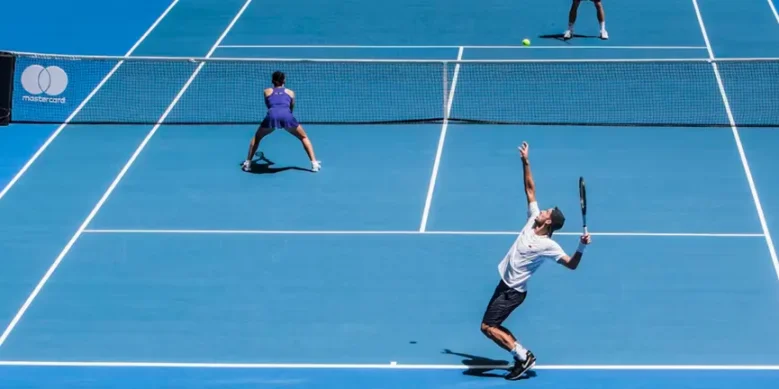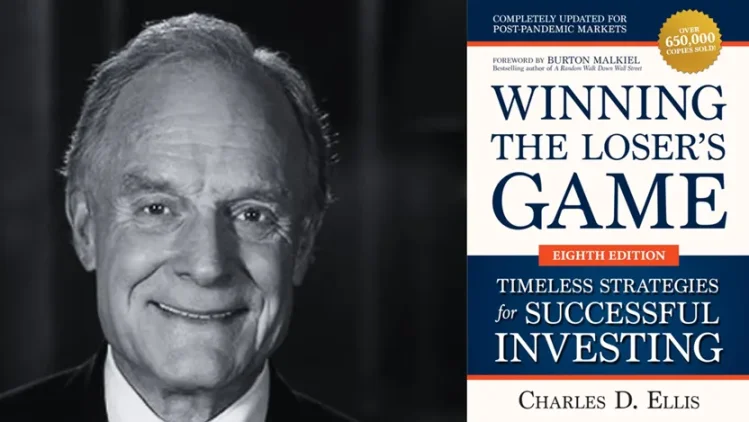Since BTC broke through $100,000, the entire Crypto market has not been rising steadily, but has been falling for three months. The most common word seen recently is "return to poverty", and many players who originally benefited well have also fallen into a new struggle.
On the one hand, BTC ETF has made a big splash on the historical stage, and on the other hand, the market has deteriorated extremely. In the face of such a bad market, if we want to survive the ups and downs, we can no longer have the same ideas as in the past few cycles, because we have to admit that the market has changed.
So how can we survive in the current market that wants to curse X? The author has recently seen some good opinions and thoughts, and I would like to share them with you.
You might as well think about a question first: In the Grand Slam-level high-level tennis match, is the skill important or the mentality important, and if it is in the ordinary amateur player's game, which one is more important?
In order to answer this question, Dr. Simon Ramo, a scientist and statistician, wrote a masterpiece about tennis strategy, "Extraordinary Tennis for Ordinary Players".
Through long-term observation, he found that there are two forms of tennis: one is the competition between professional players and a very small number of talented amateur players; the other is the competition between ordinary amateurs. Although the two use the same equipment and abide by the same rules, their essences are very different.

After systematic scientific statistical research, Dr. Ramo concluded that professional players win the game by actively scoring, while amateur players keep losing points due to mistakes. Professional players use precise and powerful shots to launch long and exciting attacks, and force their opponents out of position to score by continuous pressure. These top players rarely make mistakes. Their games are "winner games" where the outcome is entirely determined by the winner's active actions. Winning means not only getting more points, but also suppressing the opponent through active scoring.
Amateur tennis is completely different. It is rare to see exquisite shots, exciting and sustained attacks, and miraculous saves. On the contrary, the ball frequently hits the net and serves are often wrong. Amateur players rarely really beat their opponents, but always defeat themselves. The winners of these games often score more because their opponents make more mistakes.
Dr. Ramo verified his theory through an innovative method: he abandoned the traditional scoring system and instead counted the ratio of points scored and lost. The data showed that 80% of the points in professional games came from active attacks, while 80% of the points in amateur games came from the opponent's mistakes.
This means that professional tennis is a typical "winner game" where the results are determined by the winner's excellent performance; amateur tennis is a "loser game" where the results are determined by the number of mistakes made by the loser. The two games are fundamentally different.
Based on this discovery, Dr. Ramo constructed a complete winning strategy: ordinary players only need to follow the simple tactics of "reducing mistakes and inducing opponents to self-destruct" to continue to win the game.
He clearly pointed out that if the purpose is to win rather than entertain, the core strategy should be steady defense, maintain the success rate of hitting the ball, and give the opponent enough room to make mistakes. After all, amateur players are often deeply trapped in the "loser game" without knowing it, and will eventually lose in self-consumption.
In the book, Dr. Ramo revealed the essential difference between "winner games" and "loser games": the so-called "winner game" depends on the skills that exceed expectations, while the victory in the "loser game" depends on making fewer mistakes than other players.
Charles Ellis, who was hailed as "the smartest man on Wall Street" by the American "Financial" magazine and one of the leading figures in the investment industry, classified modern investment as a loser's game and wrote a best-selling book "Winning Loser Games" for this purpose.

As Ellis said in the book, investing is like playing tennis. Winners can get better long-term performance by making fewer mistakes, while losers will eventually lose money because they always make the same mistakes over and over again. No one can avoid making new mistakes, but successful investors repeat old mistakes less frequently.
Looking back at the Crypro market, it used to be a winner's game, and participating and winning required above-average skills. But today, the Crypto market has largely evolved into a loser's game-making fewer mistakes and winning as long as you survive.
So the logic becomes that we only need to not do anything out of line when others are crazy about PvP or crazy about leverage, and we can greatly increase the possibility of winning in this game.
This is also why the market a few years ago only needed to buy blindly when the bull market came to make a profit, but now it is completely impossible, because the game has changed fundamentally. More than 90% of the players in the market do not need very sophisticated operating techniques and strategies. What is important is to reduce the frequency of mistakes and errors to obtain above-average returns.
As Howard Marks, the founder of Oaktree Capital, said: For me, if we want to succeed in investment in the long term, perhaps the best way is not to make mistakes, not to make wrong investments, and not to have bad years. As long as good investments are accumulated one by one, as long as the performance is stable year after year, twenty, thirty, forty, fifty years, in the long run, it will be a successful investment career.
The above is for mutual encouragement. I hope we can all win our own victory in this game.
 Kikyo
Kikyo




